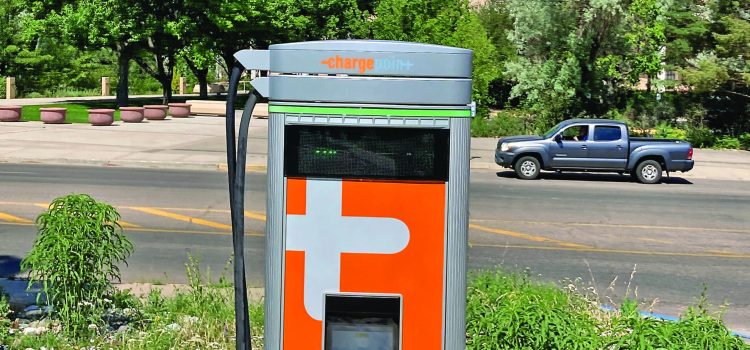
By Mona Blaber/Chapter communications
New Mexico has pledged to create Clean Cars standards to tackle the climate emergency — but the state’s timeline could delay adoption for years. So we did it for them.
Gov. Michelle Lujan Grisham pledged in 2019 to create standards to tackle vehicle climate pollution and require manufacturers to deliver an increasing number of electric vehicles to New Mexico. When 2020 came, the state said rulemaking would start in spring 2021. Now the state has postponed again, promising a rulemaking in 2022.
But because of Clean Air Act requirements around compliance timing, if New Mexico misses the window of finalizing standards this year, it likely couldn’t implement clean-car rules until 2027 — much too long to wait.
So in May, a coalition of groups, including the Sierra Club, began the process ourselves, filing a petition at the state Environmental Improvement Board and supplying a draft rule and the regulatory documents needed for the state to swiftly adopt the standards. This rulemaking is less complicated than most because federal law allows only two options — the current default federal rules or the Advanced Clean Cars standard that 17 other states have adopted or are adopting.
On July 1, our coalition also filed a petition with the Albuquerque-Bernalillo County Air Quality Control Board, asking it to update its standards by the end of 2021. The state and city both adopted Advanced Clean Car standards under Gov. Bill Richardson, but Gov. Susana Martinez revoked the state rules. However, the city never revoked its own, so all it has to do is update the rules already on its books.
The EIB must hear and approve our petition at its July 23 meeting in order to hit the deadline for the state to finalize Clean Car standards this year.
Unfortunately, New Mexico’s Environment Department plans to oppose our petition, claiming that it doesn’t have the resources for a rulemaking and that it wants a long public-meeting process. But the EIB process already provides opportunity for public comment, and because the standard New Mexico adopts must match other states’, there aren’t adjustments or details for stakeholders to weigh in on.
New Mexico’s environmental agencies have their hands full trying to protect us, and they are underfunded. Petitioning an EIB rulemaking reduces the onus on the Environment Department.
“2022 is too late,” said Tammy Fiebelkorn of Southwest Energy Efficiency Project, the group heading the coalition. “Transportation is New Mexico’s second-largest source of climate pollution. We need to act now in order to reach the governor’s goal of 45% reduction in greenhouse gases by 2030, we must start this rulemaking now.”

You must be logged in to post a comment.